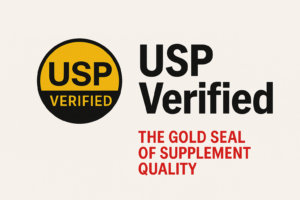
USP Verified: The Gold Seal of Supplement Quality
The USP Verified Mark is one of the most trusted third-party certifications in the supplement industry. This in-depth guide explains...
Read article →Not all supplement certifications are equal. If you’ve ever spotted seals like USP Verified or NSF Certified for Sport on a bottle, you’ve likely asked: Can I actually trust this?
This hub explores the most respected third-party certifications for supplements—what they test for, how they’re awarded, and whether they make a product safer or more effective.
In the U.S., dietary supplements aren’t required to prove purity, potency, or effectiveness before going to market. Third-party testing programs help fill the gap by verifying:
We break down the science and credibility behind leading supplement quality seals — so you can separate marketing from meaningful standards. Below, you’ll find all articles in this category.
A certified product might be clean, but that doesn’t mean it’s effective. At Sighed Effects, we evaluate both the testing — and the science behind the label.

The USP Verified Mark is one of the most trusted third-party certifications in the supplement industry. This in-depth guide explains...
Read article →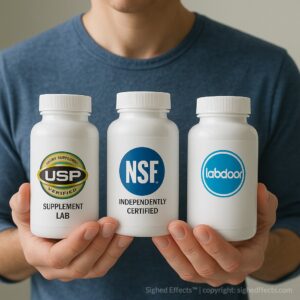
Not all supplement seals mean the same thing. Compare USP, NSF, Informed Choice, Labdoor, and more to find out which...
Read article →
A global guide to supplement certifications: Learn how Australia, Canada, Europe, Japan, China, and South Korea regulate and approve supplements...
Read article →
BSCG certification helps verify that supplements are free from banned substances. Learn how it works, what it covers, and how...
Read article →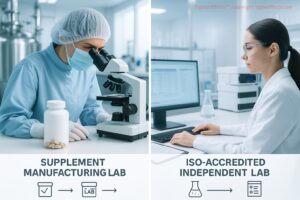
In-house testing supports supplement quality control—but only independent labs can deliver objective, consumer-facing verification. This article breaks down the strengths...
Read article →
A science-based guide to independent supplement testing—what it is, how it works, and why it matters. Learn how to evaluate...
Read article →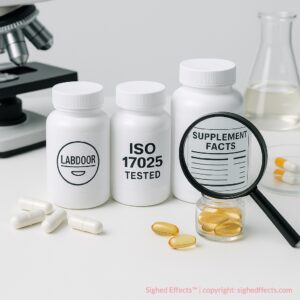
Labdoor Certification offers a rare look inside your supplements. This guide explains how Labdoor tests products, what the scores mean,...
Read article →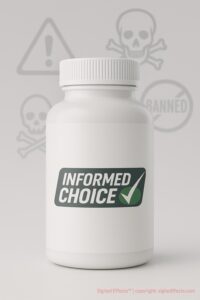
Informed Choice is one of the most respected supplement certifications for athletes and informed consumers alike. Here’s what the mark...
Read article →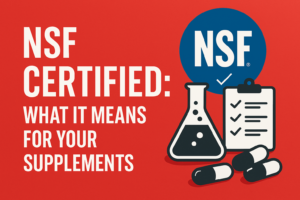
NSF Certified for Sport is more than a label—it’s a high-stakes quality system trusted by athletes, teams, and medical professionals....
Read article →Navigate to different sections of this content